measuring societal impact
Social value, and the societal impact, of railways is a key measure to inform investment decisions across rail infrastructure.
Societal impacts are now shaping the way railways are developed and operated, and measuring how investments provide a lasting social, economic and environmental legacy.
As the Tyne & Wear Passenger Transport Executive (PTE), Nexus is committed to connecting communities, changing the way people travel, supporting economic regeneration and tackling climate change. This includes its responsibilities in owning, operating and maintaining the Tyne & Wear Metro.
To help achieve these objectives and to guide investment decisions, Nexus need to be able to monitor and measure the social value of its projects and day-to-day operations.
nexus study objective
Nexus commissioned SYSTRA to undertake a study to identify and evaluate the social value of the Tyne & Wear Metro including its impact on passengers, the local community including residents and businesses, and the wider environment.
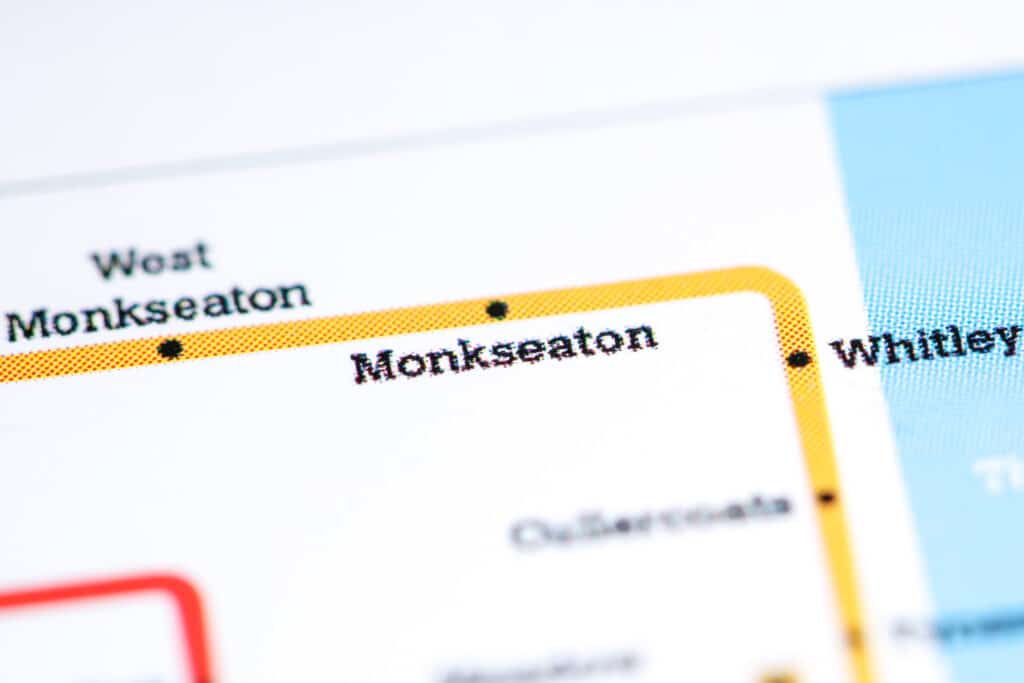
SYSTRA Approach
SYSTRA used the new Rail Social Value Tool (RSVT) developed by the Rail Safety and Standards Board (RSSB) to underpin the study findings. This online tool has been developed specifically for the rail industry in Great Britain to conduct social value appraisal of the social value generated for individuals and society by rail.
The RSVT consists of over 500 social value performance indicators categorised by 12 social impact areas including climate & environment, community & charity, and economic development.
The study involved undertaking work across 4 key stages:
Stage 1 – Identification of social value indicators in the RSVT most relevant to the delivery of social value at individual Metro stations or network-wide initiatives e.g. inclusive design features, provision of green space, provision of station space for retail and hospitality
Stage 2 – Selection of case studies of Metro stations having specific features and facilities that generate social value and of network-wide initiatives including community events held across the Metro network, and discounted and free travel passes which are not specific to individual Metro stations.
Stage 3 – Site visits to see the different station features and facilities, stakeholder interviews and data collection required to input to the RSVT.
Stage 4 – Monetisation of social value impacts using the RSVT with outputs representing the full annual social value impact in 2022/23.
The Results
The case studies which were developed highlighted the wider social, economic and environmental benefits of the Metro and the positive impact this has on passengers and local communities. The total social value delivered at the 4 case study stations (Whitley Bay, Monkseaton, South Shields and Haymarket) in 2022/23 was valued at £8.25m using the RSVT.

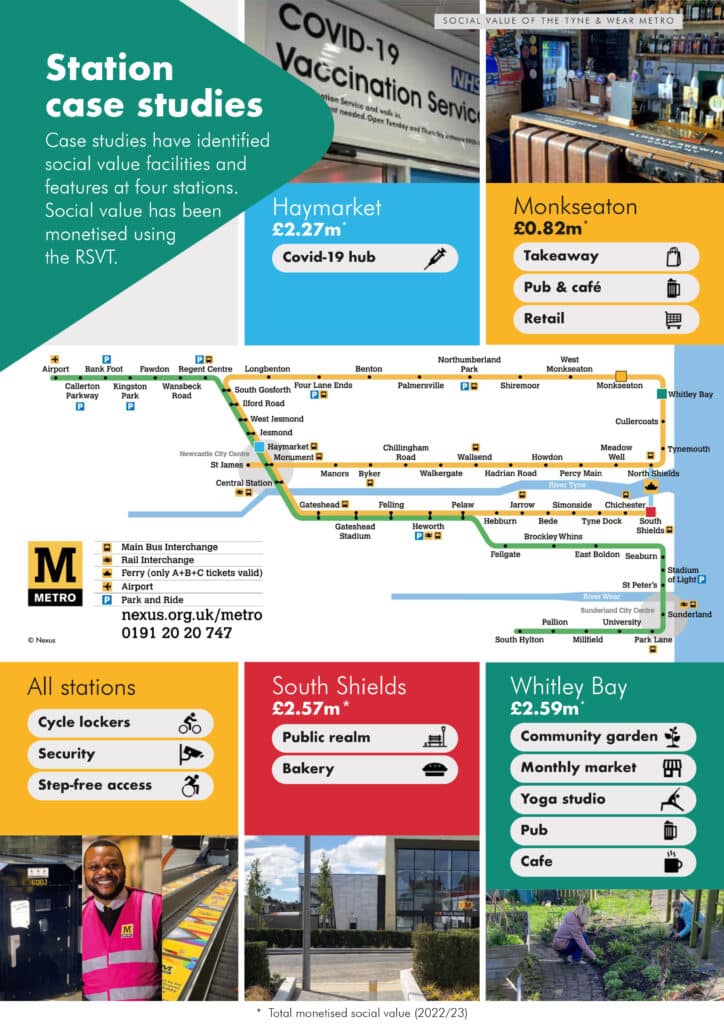
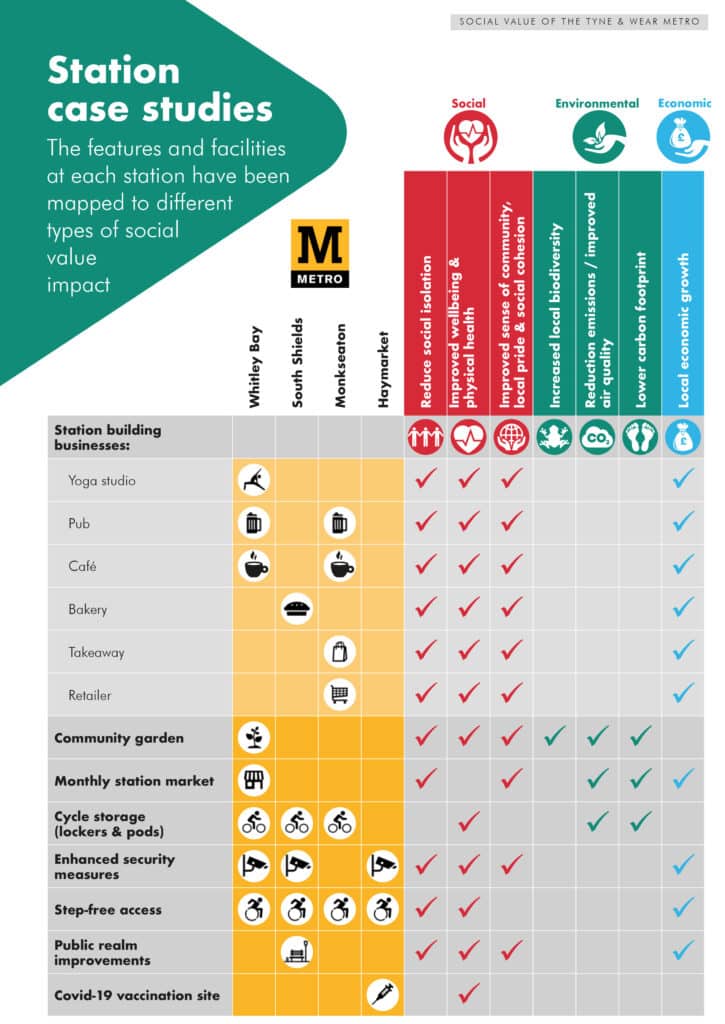
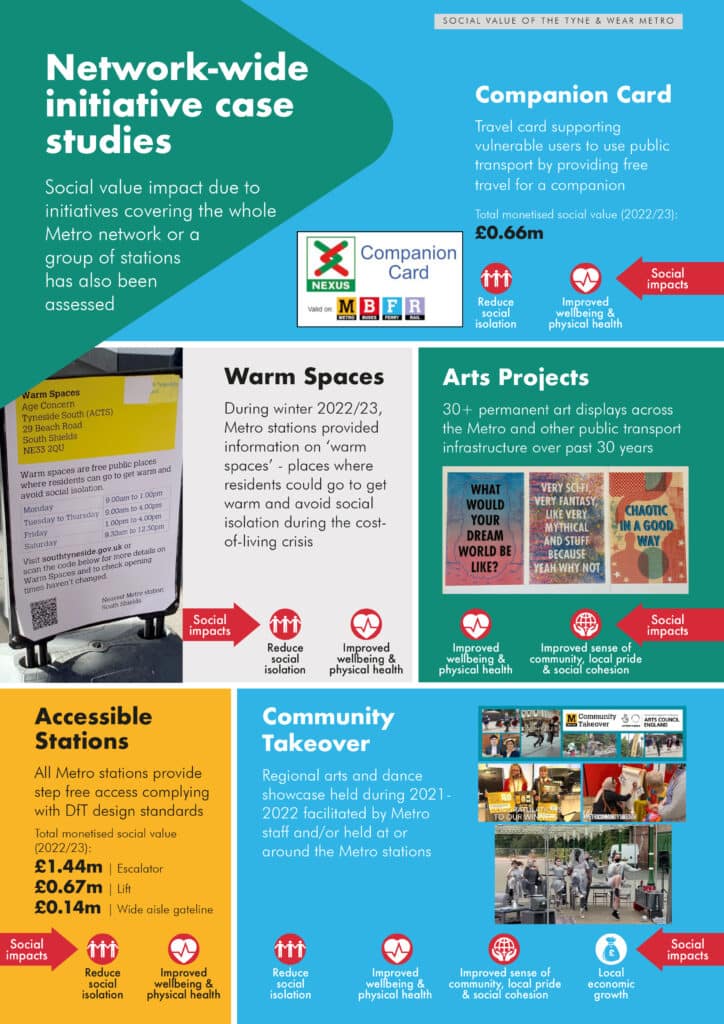
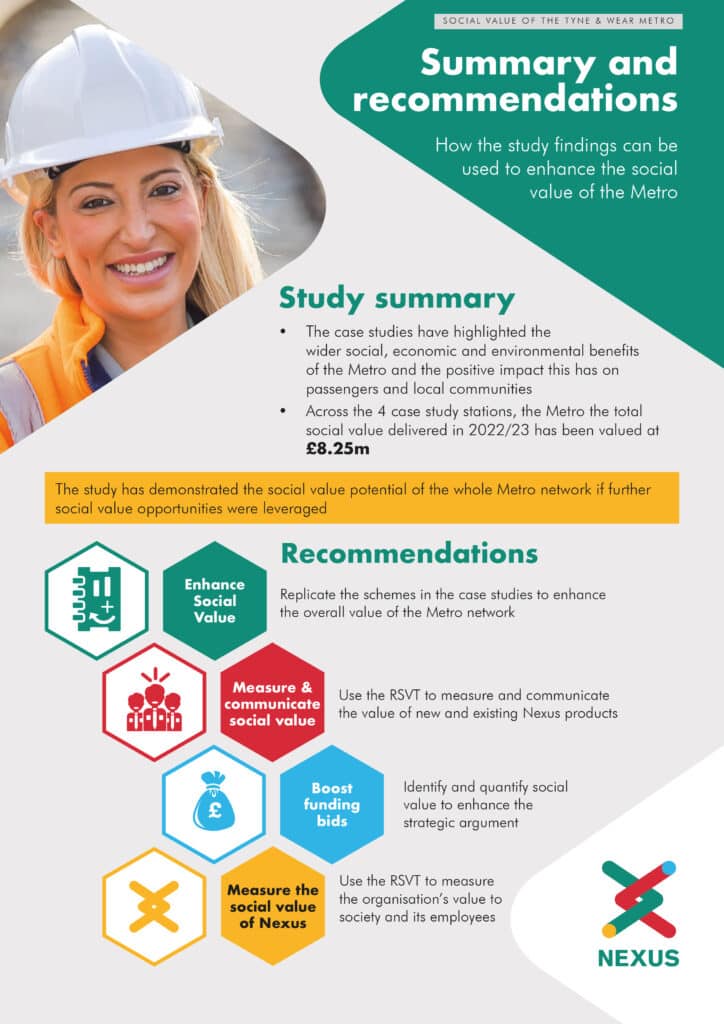
The recommendations for next steps to leverage further social value opportunities across the Metro network include:
- replicate the social value features and facilities identified in the 4 case study stations at other Metro stations to enhance the overall social value of the Metro network
- use the RSVT to measure and communicate the social value of existing and new Nexus products such as concessionary travel passes
- identify and quantify social value to boost funding bids e.g. for new stations
- use the RSVT to measure the social value of Nexus as an organisation to society and its employees.
 Australia
Australia  Brazil
Brazil  Canada
Canada  China
China  Denmark
Denmark  France
France  India
India  Indonesia
Indonesia  Ireland
Ireland  Italy
Italy  Malaysia
Malaysia  New Zealand
New Zealand  Norway
Norway  Poland
Poland  Saudi Arabia
Saudi Arabia  Singapore
Singapore  South Korea
South Korea  Sweden
Sweden  Taiwan
Taiwan  Thailand
Thailand  United States
United States  Vietnam
Vietnam 

